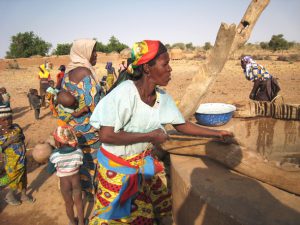by Shelton Owen
Hama Amadou, President Mahamadou Issoufou’s opposition in Niger’s 2016 election, was sentenced to one year in jail following a long-running baby smuggling investigation. The former candidate has been living in France for the past year after fleeing Niger just days before a run off, citing health concerns. The prosecution claimed Amadou was among a group of criminals who smuggled babies into Niger via Benin. Amadou’s lawyers claim the sentence is politically motivated and unjust: a way to prevent him from running for office again. The smuggling incident stems from the negative stigma attached to childlessness. In recent years, wealthy couples have turned to “baby shopping” as a means to compensate for the wife’s inability to conceive. Couples would look for a baby in Nigeria then have them transported to Niger.
Child trafficking is one of the highest paying criminal activities worldwide. Adoption trafficking, though faring better for the child than sex trafficking or child servanthood, still strips the child, and possibly their birth parents, of basic human rights. The African orphan crisis traces back to the continent’s high poverty rates. Parents are being tricked into signing away their children to orphanages with the belief that the setup is temporary, only lasting until they can regain stability. Unfortunately, manipulators such as Amadou capitalize on the system’s weaknesses and falsely claim parenthood of these children, only to sell them for profit to the highest bidder.
Going to such great lengths for a baby may seem absurd for those of us in the U.S. who have adoption, foster parenting, and other methods of parenthood. However, the instance points to a larger issue in African culture. A couple without children is thought to be cursed or to have angered the spirits, giving them an obvious mark for all of society to scrutinize. African culture places strong emphasis on religion and views children as a gift from God, only amplifying the stigma surrounding childlessness. Though the World Health Organization reports around 50% of infertility cases are due to the man, it is solely the woman who takes the heat the majority of the time. Wealthy couples have the privilege of seeking different methods of parenthood (though it may not be legal), but the less fortunate don’t have that option. The most frequent effects on the women are distress, lowered self-esteem, depression, and raised anxiety levels. In some cases, the husband divorces his wife or takes another. For developing countries, such as Niger, fertility drugs and IVF are expensive and limited. The issue often stems from infections such as STDs, which are common due to inadequate healthcare, improper use of antibiotics, and penicillin-resistant strains of gonorrhea.
Wells Bring Hope empowers the women of Africa, regardless of their motherhood status. Through micro-financing and education training programs, women can find their niche in society, fostering a sense of self-confidence and purpose. The women’s increasing responsibility in the community chips away at the expansive gender gap dominating many aspects of daily life. Small steps like this nudge the nation towards the goal of women being viewed as equal partners versus inferior servants. Those with children have the chance to contribute to their family’s income and sustain a stable home life, reducing the threat of having to put a child up for adoption.

Women in Niger utilizing a WBH well


